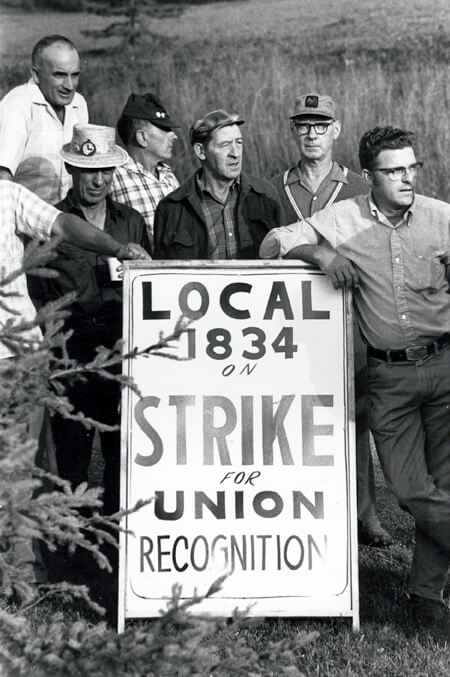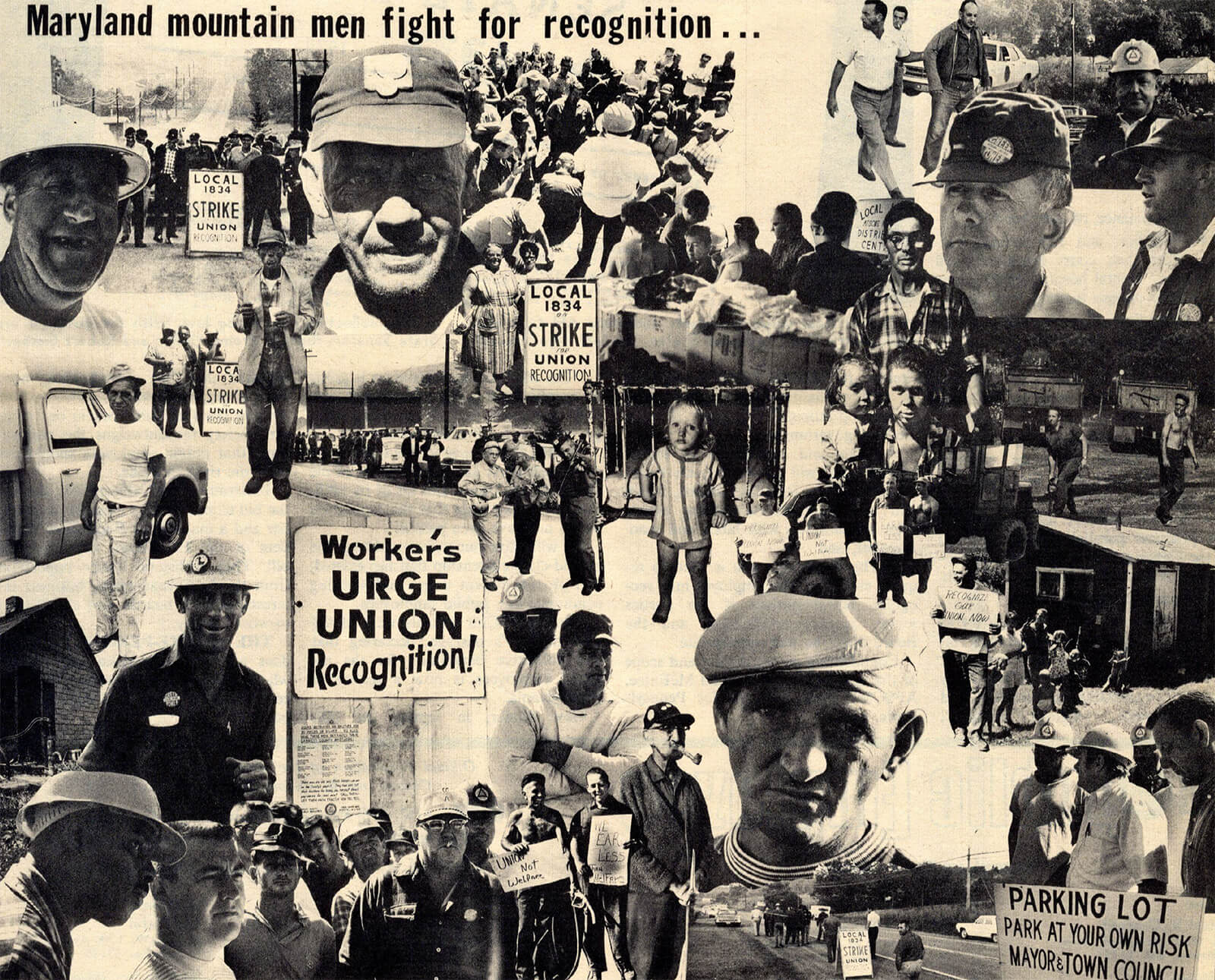
It was 50 years today when the road workers who served Western Maryland’s Garrett County went on strike for union recognition, and the stark challenges facing the workers and their lessons of perseverance remain as relevant in 2020 as they were in 1970.
It remains one of the longest public employee strikes in American history – 227 days. Then-AFSCME President Jerry Wurf was quoted in 1971 by our union’s now-defunct newspaper, The Public Employee, as saying this about the strike: “It is one of the most remarkable demonstrations of solidarity and determination that we have ever seen in the union.”
Prior to their bid to unionize, nearly 150 men had served as part of an unaffiliated group called the Garrett County Road Employees Association for 13 years. The road workers had some rights, like collective bargaining and dues checkoff, however, for their back-breaking work of maintaining the region’s mountain roads, many were earning poverty wages, despite having worked for years and, in some cases, even decades.
Workers like Clarence Bowmer had been with the county for 28 years. When he started with the road department, the average wage was 55 cents an hour. At the time of the strike, it was $1.97.
“You need the union to protect your job,” said another worker, Bill Finch, as quoted in The Public Employee. “You can go in some mornings and get sent home. They tell you they don’t need you.”
The workers had no choice but to accept whatever work was given and had no say when they were sent home.
Seeking better wages and better working conditions, 123 of the 144 workers voted to affiliate with AFSCME.
However, the Garrett County Commission refused to recognize AFSCME as the bargaining agent for the workers. So, the workers struck on April 7, 1970.
